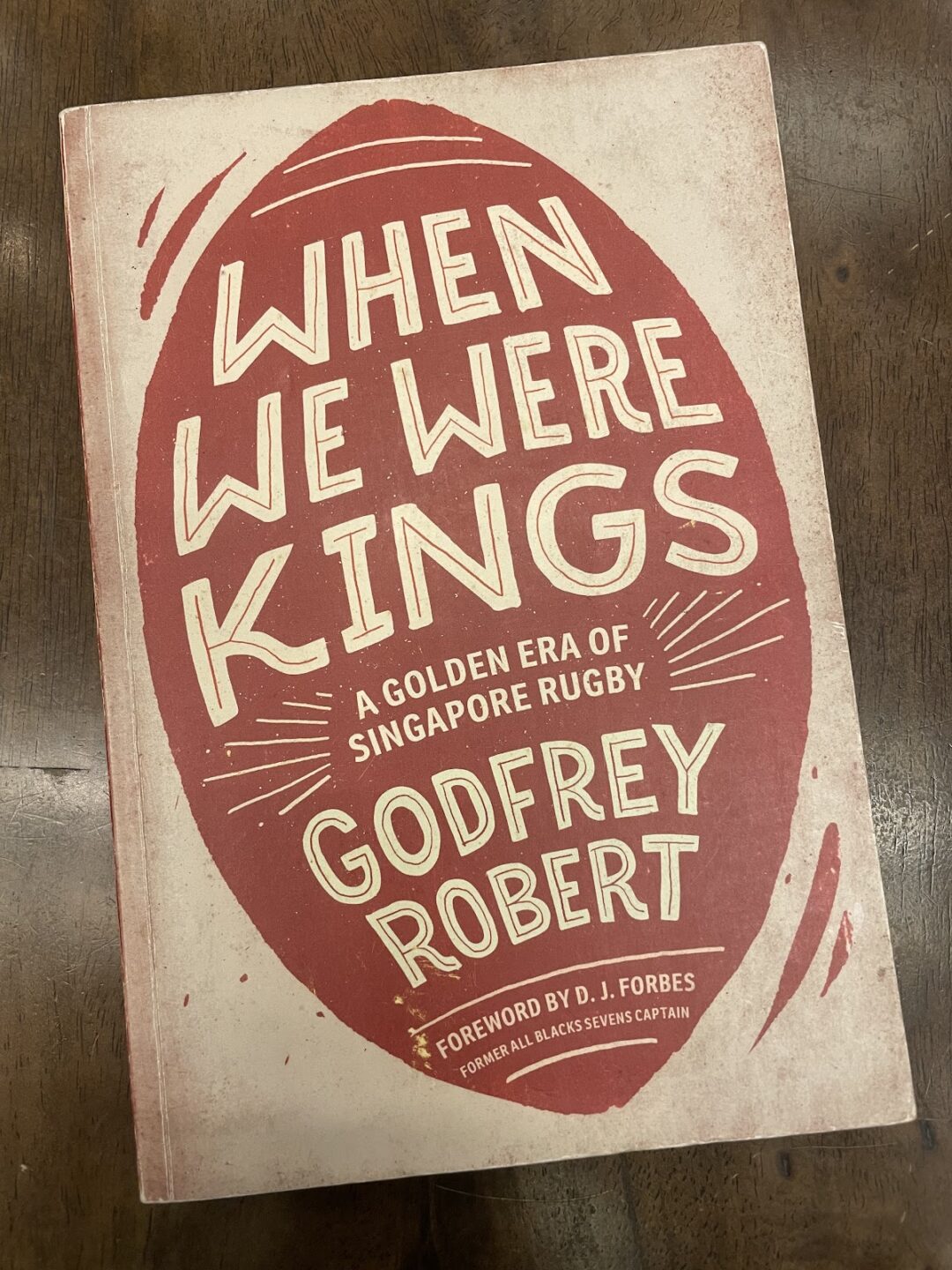Among the many nation building stories of Singapore, it is hard to find inspirational sporting stories that can compete with the outstanding glory achieved by the Singapore Rugby team of 1978.
In 1978, the national men’s rugby team made history by clinching the Malaysian Rugby Union Cup and winning a treble of national awards; Team of the Year, Coach of the Year and Sportsman of the Year.
Launched on 22 September 2018, When We Were Kings: A Golden Era of Singapore Rugby is a monument to the accomplishments of a band of brothers who brought together their gifts and gifted the nation incredible joy. The launch event was covered by The New Paper and Tabla!.
In this book, veteran sports journalist Godfrey Robert recounts in detail the trials and tribulations, and the inspirational stories of key individuals who played major roles in the team’s to climb the pedestal.
While rugby had been played in Singapore for decades, the national team had been dominated by the larger built expatriate caucasians hailing from deployed armed forces based in Singapore. Only in 1972, when the first all-Asian team, that also comprised of locally born Eurasians, were fielded, did the local community have a chance to showcase their fighting spirit.
Captain of the 1978 team, Mr Jarmal Singh, is someone we can all be proud of. He led his team to beat the Royal New Zealand Infantry Regiment side in the semi-finals and a 19-3 victory over the Malaysian Armed Forces in the final!
Jarmal was labelled as one of the ’Fabulous Five’ in the book, making it clear to all that he played a pivotal role in the performance of the team that led to their victories.
Picking up rugby in 1971 as an adult during his time at the Police Academy after graduating from university, Jarmal had to juggle work, training and family commitments. His athletic ability was second to none and he wore national colours by 1974. Within a year, his strong leadership qualities landed him the role of Captain of the national team and he led Singapore to finish third in the 1975 Southeast Asia Peninsular Games. He was also part of the silver medal winning team at the 1977 South East Asia Games.
His leadership qualities were not limited to the field. In his career, he quickly rose through the ranks and retired as an Assistant Commissioner of the Singapore Police Force in 2006. He has also been active in the Sikh community, volunteering for various activities, and even chairing the Sikh Advisory Board for multiple terms in the last two decades. For a deeper dive into Jarmal’s legacy in the Force, check out this article by Asia Samachar.
Sharing his experiences that led to the victorious moment, Jarmal described how the team never took the easy path during training. Knowing that the other national teams of the region were well trained and physically well-built, the Singapore team regularly played against the locally based Australian and New Zealand armed forces. With frequent training sessions against players who lived and breathed rugby, the local team was able to hone their skills and tone their bodies for any opponent who stood in their way.
Players were also put through cross-country runs, beach workouts and gym training. All this while the players were full time employed workers with families to attend to. All this training added to Jarmal’s innate talent as his running prowess was recognised by fans in Thailand who gave him the title of the ‘Flying Sikh’ for his speed and agility when he scored several tries at a Chiang Mai Sevens tournament!
Jarmal’s legacy did not stop with him as his youngest son, Karnjote Singh, played rugby for Catholic Junior College and Nanyang Technological University in the 2000s. More recently, Jarmal’s grandson also picked up the sport to play rugby for Anglo-Chinese Singapore (Junior) and with the Singapore Cricket Club Junior team. Not forgetting the importance of a strong supportive partner, Jarmal also gave credit to his wife for dedicating herself to caring for the family while he was away for training and on overseas rugby trips.
Also mentioned in the book, is Dharsan Singh, one of six sports journalists who chronicled the matches and exploits of the players. Fostering a strong relationship with the players, Dharsan was able to cover significant tournaments and wrote articles that earned him swift promotions in the Straits Times during the heydays of the sport.
Jarmal’s journey is also captured in a video by the Young Sikh Association (Singapore) reading his contribution to the 50 Sikhs in Singapore, a book published in 2015 to celebrate the Sikh community’s contributions to Singapore.
To get your hands on the book, visit Epigram or Kinokuniya.
